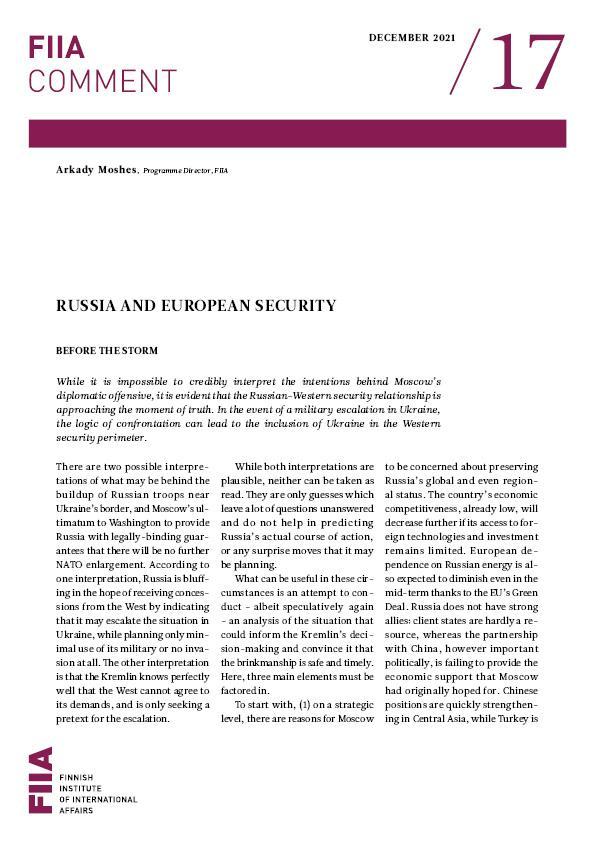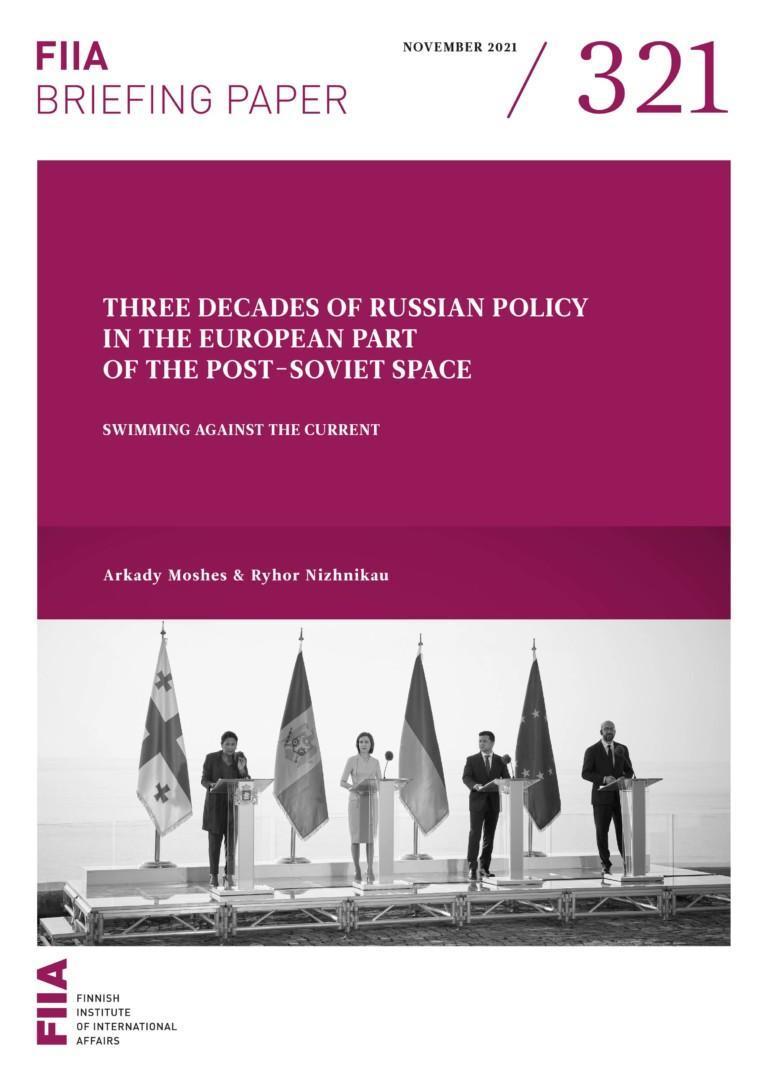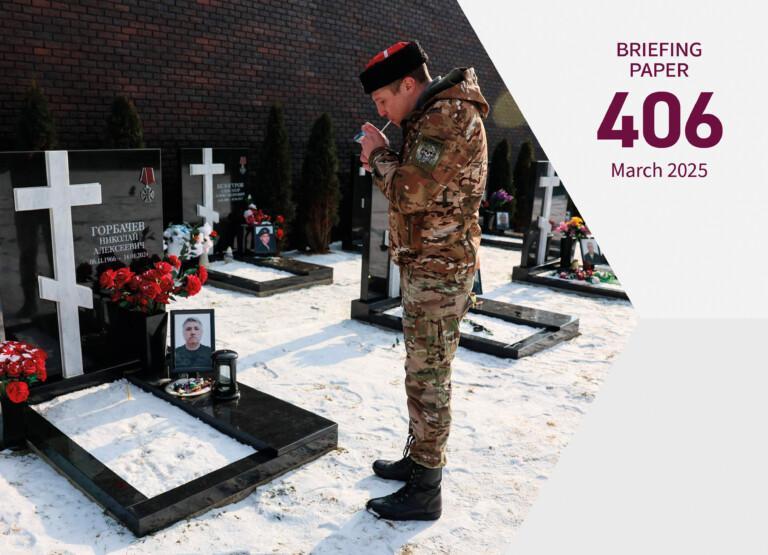While it is impossible to credibly interpret the intentions behind Moscow’s diplomatic offensive, it is evident that the Russian-Western security relationship is approaching the moment of truth. In the event of a military escalation in Ukraine, the logic of confrontation can lead to the inclusion of Ukraine in the Western security perimeter.
There are two possible interpretations of what may be behind the buildup of Russian troops near Ukraine’s border, and Moscow’s ultimatum to Washington to provide Russia with legally-binding guarantees that there will be no further NATO enlargement. According to one interpretation, Russia is bluffing in the hope of receiving concessions from the West by indicating that it may escalate the situation in Ukraine, while planning only minimal use of its military or no invasion at all. The other interpretation is that the Kremlin knows perfectly well that the West cannot agree to its demands, and is only seeking a pretext for the escalation.
While both interpretations are plausible, neither can be taken as read. They are only guesses which leave a lot of questions unanswered and do not help in predicting Russia’s actual course of action, or any surprise moves that it may be planning.
What can be useful in these circumstances is an attempt to conduct – albeit speculatively again – an analysis of the situation that could inform the Kremlin’s decision-making and convince it that the brinkmanship is safe and timely. Here, three main elements must be factored in.
To start with, (1) on a strategic level, there are reasons for Moscow to be concerned about preserving Russia’s global and even regional status. The country’s economic competitiveness, already low, will decrease further if its access to foreign technologies and investment remains limited. European dependence on Russian energy is also expected to diminish even in the mid-term thanks to the EU’s Green Deal. Russia does not have strong allies: client states are hardly a resource, whereas the partnership with China, however important politically, is failing to provide the economic support that Moscow had originally hoped for. Chinese positions are quickly strengthening in Central Asia, while Turkey is challenging Russia in the Caucasus and the Middle East. Most painfully, the annexation of Crimea and the conflict in Donbas did nothing to prevent security cooperation between the West and Ukraine. And this list of concerns is by no means complete.
However, (2) there is now a window of opportunity to achieve some tactical gains at the expense of the also weakening West, and to possibly slow down the decline of Russia’s own status. The Afghanistan debacle, which followed the fiasco in Syria, should make Western leaders extremely reluctant to take new security risks in general, and in Eastern Europe above all. Energy prices in Europe are already exorbitant, with the COVID-19 pandemic in the background, and a full-scale energy crisis resulting from disruptions to the Russian gas supply would be a nightmare scenario. Given the apparent contradictions concerning the approach to Russia in the new German government, and the forthcoming presidential campaign in France, Europe does not and will not have the sorely needed leadership and ability to speak with one voice. Meanwhile, the US administration is also reportedly split into supporters and opponents of a tougher line on Russia and is sending contradictory signals.
Furthermore, (3) threats of Western economic sanctions against Russia are usually greatly exaggerated compared with actual sanctions. Europe’s response to the Russian-Georgian war of 2008 was a quick return to “business as usual” and a continuation of the Russia-EU “strategic partnership”. The Nord Stream 2 pipeline was not affected by the crisis over Ukraine. The “We need Russia” rhetoric never stopped in Europe and culminated in the 2019 initiative by French President Emmanuel Macron to re-engage with Moscow. In turn, consecutive US presidents of the Vladimir Putin era, when facing a crisis in relations with Russia, tried “to read his soul” (George Bush), to initiate a “reset” and refuse to give Ukraine lethal weapons (Barack Obama), “to get along with Russia” (Donald Trump), or to achieve de-escalation by means of top-level dialogue (Joe Biden). Why should it be any different this time?
The coming months will show whether and to what extent the calculus will have worked. Despite the initial negative reactions by Western actors, the West may indeed not summon the resolve to face a new security crisis, in which case Russia may be offered a compromise big enough to feel like a winner. “He who does not take risks will never drink champagne”, as the Russian saying goes.
But if this happened, the negative effects for the reputation of the US and NATO worldwide as security providers would be massive. Similar demands by other powers, first and foremost China, would inevitably follow eventually. For this reason, making enough concessions this time is going to be unaffordable for the West, so it is more likely to say no. And then, if the military escalation does take place on the territory of Ukraine, the West will have no choice but to recognize explicitly that the conflict between Russia and Ukraine is not a separate problem but part and parcel of a much larger Russian-Western conflict. In that case, Ukraine would need to be viewed as an element of the Western security perimeter proper, with due implications. This is contrary to what Russia wants, and is exactly what the West has been trying to avoid thus far, but this may now happen simply by virtue of the logic of confrontation.
Evidently, the European security system and the Russian-Western security relationship are approaching the moment of truth.







